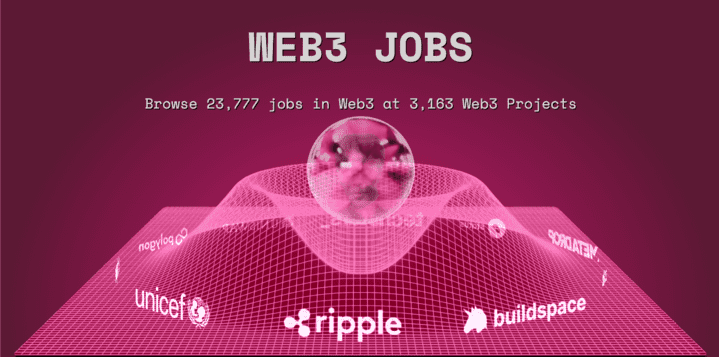Introduction
The rise of Web3 technology is transforming how businesses, individuals, and governments interact with the digital economy. In Nigeria, Web3 is paving the way for decentralized applications (dApps), blockchain-based finance (DeFi), and secure digital transactions that eliminate intermediaries.
With a growing number of Web3 development agencies in Nigeria, businesses and startups now have the opportunity to leverage blockchain, smart contracts, and DeFi solutions to create more transparent, secure, and efficient systems.
In this article, we’ll explore:
✔ What Web3 is and how it works
✔ How Web3 is shaping Nigeria’s digital economy
✔ The impact of DeFi, NFTs, and DAOs in Africa
✔ How businesses can benefit from Web3 technology
✔ The future of Web3 adoption in Nigeria
What Is Web3? A Simple Explanation
Web3 (Web 3.0) is the next evolution of the internet that is built on blockchain technology, decentralization, and token-based economies. Unlike the traditional Web2 (where platforms like Google, Facebook, and banks control data), Web3 empowers users by giving them direct control over their digital assets, identities, and transactions.
Key Features of Web3
✔ Decentralization – No central authority controls data or transactions.
✔ Smart Contracts – Self-executing contracts that automate processes.
✔ Blockchain Transparency – Immutable and tamper-proof records.
✔ Token-Based Economy – Cryptocurrencies and NFTs facilitate ownership and rewards.
✔ DeFi (Decentralized Finance) – Financial transactions without banks or intermediaries.
💡 Example: Instead of using a bank, a Nigerian entrepreneur can use DeFi platforms to receive loans or payments directly from international clients via smart contracts.
How Web3 is Shaping Nigeria’s Digital Economy
1. Decentralized Finance (DeFi) in Nigeria
✔ DeFi platforms provide Nigerians with access to lending, borrowing, and savings services without traditional banks.
✔ Enables peer-to-peer transactions with low fees and fast settlements.
✔ Popular DeFi platforms like Aave and Uniswap allow users to trade and earn passive income.
💡 Example: A Nigerian freelancer can receive stablecoins like USDT via DeFi wallets instead of dealing with bank restrictions on dollar transactions.
2. NFT and Digital Ownership Revolution
✔ Nigerian artists, musicians, and content creators can sell their work as NFTs, eliminating middlemen.
✔ NFT marketplaces in Nigeria enable artists to reach global buyers while earning royalties on resale.
✔ The gaming industry is embracing play-to-earn models, allowing users to monetize gameplay.
💡 Example: A Lagos-based fashion brand can launch NFT-based exclusive clothing collections, where customers own digital proof of authenticity.
3. DAOs (Decentralized Autonomous Organizations)
✔ DAOs allow Nigerians to create community-driven organizations without a central authority.
✔ Transparent voting and governance ensure fair decision-making.
✔ Can be used for crowdfunding, investment clubs, and community projects.
💡 Example: A group of Nigerian tech entrepreneurs can form a DAO for startup investments, pooling funds to support promising blockchain projects.
4. Web3 and E-Governance in Nigeria
✔ Blockchain-based voting systems reduce election fraud and increase transparency.
✔ Public record-keeping on blockchain ensures accountability in government processes.
✔ Land ownership verification via smart contracts eliminates corruption in property transactions.
💡 Example: The Nigerian government could implement blockchain-based land registries to prevent multiple sales of the same property.
How Businesses in Nigeria Can Benefit from Web3 Technology
1. Secure and Transparent Transactions
✔ Payments on Web3 platforms are faster, cheaper, and borderless.
✔ Crypto payments help businesses expand globally without banking limitations.
✔ Reduces fraud risks due to blockchain transparency.
💡 Example: A Nigerian eCommerce business can accept crypto payments through Web3 payment gateways like BitPay or Binance Pay.
2. Smart Contracts for Business Automation
✔ Automate contracts for hiring, payments, and supply chain management.
✔ Reduce legal costs and eliminate the need for intermediaries.
✔ Ensures compliance by executing agreements only when conditions are met.
💡 Example: A logistics company in Lagos can use smart contracts to automatically release payments to truck drivers upon successful delivery.
3. Web3 Marketing & Community Engagement
✔ Brands can create tokenized loyalty programs using blockchain rewards.
✔ NFTs can be used for exclusive brand access and promotions.
✔ Engaging customers through Web3 social media platforms (Lens Protocol, BitClout, etc.).
💡 Example: A Nigerian tech brand can issue customer reward tokens that increase in value as users interact with their products.
The Future of Web3 Adoption in Nigeria
✔ Increased blockchain education and awareness will drive adoption.
✔ More Nigerian startups will integrate Web3 solutions into their businesses.
✔ The rise of Metaverse and decentralized identity solutions will shape digital interactions.
✔ Government and regulatory bodies will develop clearer Web3 policies.
💡 Stat: According to Chainalysis, Nigeria ranks among the top countries in crypto adoption, making it a Web3 hotspot in Africa.
🚀 Now is the time for Nigerian businesses to embrace Web3 and stay ahead of the digital revolution!
Why Choose RJB Xclusive Digital Agency for Web3 Development in Nigeria?
✔ Leading Web3 Development Agency in Nigeria
✔ Experts in DeFi, Smart Contracts, and Blockchain Solutions
✔ Custom Web3 dApp Development & NFT Integration
✔ Secure and Scalable Web3 Applications
🚀 Get a FREE consultation on how Web3 can transform your business! Contact us today!
